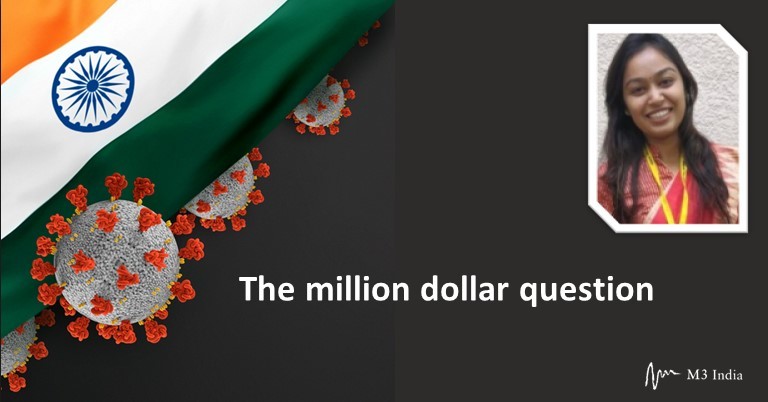On 24 March, the Government of India under the Prime Minister ordered a nationwide lockdown for 21 days, limiting movement of the entire 1.3 billion population of India as a preventive measure against the 2020 coronavirus pandemic in India. Here, Dr. Apurva Jain shares her thoughts further on this current lockdown situation as being essential to contain the spread of the virus.
For our comprehensive coverage and latest updates on COVID-19 click here.

The Merriam-Webster dictionary defines lockdown as “an emergency measure or condition in which people are temporarily prevented from entering or leaving a restricted area or building (such as a school) during a threat of danger.”
Perceiving this lethal virus as a formidable threat, one third of the world today is under either a selective or a complete lockdown; and as the current lockdown approaches its end, every Indian today is pondering on the question of whether the lockdown should be extended or not.
The effect that a complete shutdown has been having on the economy is undebated. It has been and will continue to affect people from all socio-economic backgrounds in some way or the other. The complete shutdown of the economy and the zero- value addition will definitely lead to financial instability. People might lose their jobs and have pay cuts in a country where unemployment and underemployment have already been perennial issues. There is going to be deficit of consumer demand and even supply side and trade chain disruptions. The fall in numbers have already started affecting many sectors and it will take some time before the economy could be recovered. Even the state might not be able to sustain for a long time, given the strain that the welfare schemes have been having on the national funds.
Having said all this, it is high time our nation and its people understand that if there is life, there is hope. It is widely accepted that India took a smart decision of a lockdown and strict social distancing, earlier than other countries in its journey of battling the virus. By this decision, the nation has successfully decelerated the journey of this highly transmissible virus in a country with a density as high as 420/km2. But what is also true, is that by doing this, we have only bought ourselves some time to take aggressive measures like ramping up testing, roping in more human resources, arranging for more ventilators and in strengthening community engagement.
It is well-known how South Korea managed to flatten its curve without any lockdowns- it adopted the strategy of aggressive testing and contact tracing along with innovations like drive-through testing. The government should partly look forward to instituting such a strategy, albeit in clusters. Extra funds roped in from various sources like MPLADS need to be providently utilised.
